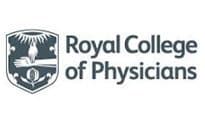Medical apps need CE mark – RCP
- 29 April 2015

Doctors should only use medical apps with an official CE mark, new guidance from the Royal College of Physicians says.
The guidance, produced in consultation with the Medicines and Healthcare Products Regulatory Agency and the General Medical Council, applies to medical apps that can be classed as medical devices, which are bound by EU law to carry the mark.
The RCP says an app is classed as a medical device if it is used to “diagnose, support diagnosis or clinical decision, make calculations to determine diagnosis or treatment, or are used for any medical purpose”.
“If you are using an app that should have a CE mark but it is missing, then you are leaving yourself open to problems and possible litigation,” the guidance says.
Despite the prevalence of medical apps, it’s unclear how many have a CE mark.
Jeremy Wyatt, the RCP’s lead on new technologies, told EHI News he was aware of just one – the Mersey Burns app that advises doctors on the fluid requirements of burns victims based on the level of skin damage.
The app, which was a winner at the EHI Awards 2013, received a CE mark in 2011 and remains one of the most well-known medical apps in the country.
However, some other apps have since received the CE mark. These include AliveCor’s app to detect atrial fibrillation; AirStrip Technology’s suite of monitoring tools; and Sanofi’s iBG Star app to monitor blood glucose in people with diabetes.
Wyatt added that physicians shouldn’t just pay attention to whether an app has a CE mark, but should do further research to ensure the app they are using is accurate and has benefits in clinical use.
He said that further work needs to be done in the area and mentioned the prospect of using randomised clinical trials to support the use of medical apps.
“The RCP is not against apps at all. We are optimistic about them being a positive and important tool in healthcare,” said Wyatt, who last year co-wrote a paper on the need to develop a risk assessment model for medical apps.
The definition provided by the RCP means that the many health and wellbeing apps currently in use that do not provide personalised advice would not fall under the category of medical apps.
These types of apps include ones with administrative functions, such as booking appointments; apps that provide general guidance or support training; and apps that are not marketed as medical apps but can be used in medical situations, such as a calculator.
The use of apps in healthcare has become a point of contention since the rise of the smartphone, with a recent article in the BMJ featuring a comment from GP Des Spence who said that most were “untested and unscientific”.
This view was contrasted in the same article by Iltifat Husain, editor of healthcare app review website iMedicalApps.com and assistant professor of emergency medicine, who said the healthcare profession risks being “left behind” if it waits for studies to prove the benefits of apps.
The Department of Health is attempting to address the growing interest in healthcare apps with its Personalised Health and Care Framework 2020 also outlining plans to introduce an endorsement model for apps recommended by the NHS, with proposals on the process to be published in June,
The British Standards Institution, one of the UK’s notified bodies for medical devices, has also said it plans to publish guidelines on the development of healthcare apps this month.
The CE mark is an indicator that shows a product complies with EU safety, health and environmental requirements.
The guidance says: “A CE mark is the assurance that an app meets essential criteria, works and should be clinically safe (rather like an MOT for a care in the UK)."




